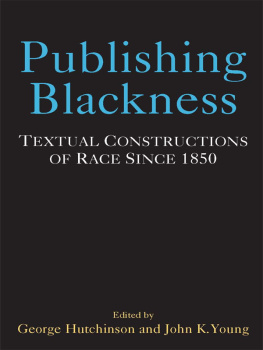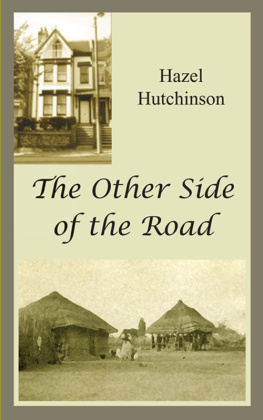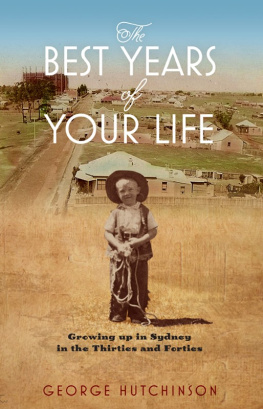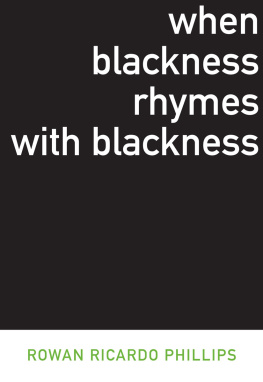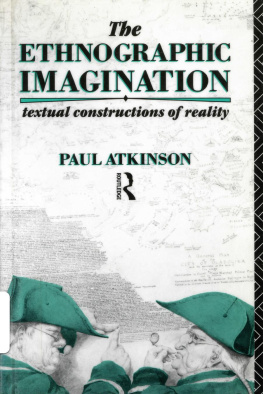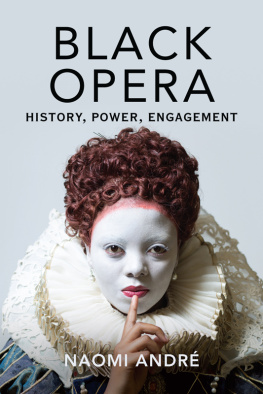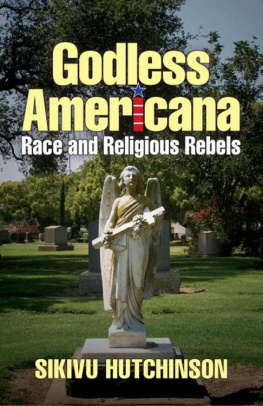Hutchinson George - Publishing Blackness: Textual Constructions of Race Since 1850
Here you can read online Hutchinson George - Publishing Blackness: Textual Constructions of Race Since 1850 full text of the book (entire story) in english for free. Download pdf and epub, get meaning, cover and reviews about this ebook. year: 2018, publisher: The University of Michigan Press, genre: Art. Description of the work, (preface) as well as reviews are available. Best literature library LitArk.com created for fans of good reading and offers a wide selection of genres:
Romance novel
Science fiction
Adventure
Detective
Science
History
Home and family
Prose
Art
Politics
Computer
Non-fiction
Religion
Business
Children
Humor
Choose a favorite category and find really read worthwhile books. Enjoy immersion in the world of imagination, feel the emotions of the characters or learn something new for yourself, make an fascinating discovery.
- Book:Publishing Blackness: Textual Constructions of Race Since 1850
- Author:
- Publisher:The University of Michigan Press
- Genre:
- Year:2018
- Rating:3 / 5
- Favourites:Add to favourites
- Your mark:
- 60
- 1
- 2
- 3
- 4
- 5
Publishing Blackness: Textual Constructions of Race Since 1850: summary, description and annotation
We offer to read an annotation, description, summary or preface (depends on what the author of the book "Publishing Blackness: Textual Constructions of Race Since 1850" wrote himself). If you haven't found the necessary information about the book — write in the comments, we will try to find it.
Publishing Blackness: Textual Constructions of Race Since 1850 — read online for free the complete book (whole text) full work
Below is the text of the book, divided by pages. System saving the place of the last page read, allows you to conveniently read the book "Publishing Blackness: Textual Constructions of Race Since 1850" online for free, without having to search again every time where you left off. Put a bookmark, and you can go to the page where you finished reading at any time.
Font size:
Interval:
Bookmark:

EDITORIAL THEORY AND LITERARY CRITICISM
George Bornstein, Series Editor
Palimpsest: Editorial Theory in the Humanities, edited by George Bornstein and Ralph G. Williams
Contemporary German Editorial Theory, edited by Hans Walter Gabler, George Bornstein, and Gillian Borland Pierce
The Hall of Mirrors: Drafts & Fragments and the End of Ezra Pound's Cantos, by Peter Stoicheff
Emily Dickinson's Open Folios: Scenes of Reading, Surfaces of Writing, by Marta L. Werner
Scholarly Editing in the Computer Age: Theory and Practice, Third Edition, by Peter L. Shillingsburg
The Literary Text in the Digital Age, edited by Richard J. Finneran
The Margins of the Text, edited by D. C. Greetham
A Poem Containing History: Textual Studies in The Cantos, edited by Lawrence S. Rainey
Much Labouring: The Texts and Authors of Yeats's First Modernist Books, by David Holdeman
Resisting Texts: Authority and Submission in Constructions of Meaning, by Peter L. Shillingsburg
The Iconic Page in Manuscript, Print, and Digital Culture, edited by George Bornstein and Theresa Tinkle
Collaborative Meaning in Medieval Scribal Culture: The Otho La3amon, by Elizabeth J. Bryan
Oscar Wilde's Decorated Books, by Nicholas Frankel
Managing Readers: Printed Marginalia in English Renaissance Books, by William WE. Slights
The Fluid Text: A Theory of Revision and Editing for Book and Screen, by John Bryant
Textual Awareness: A Genetic Study of Late Manuscripts by Joyce, Proust, and Mann by Dirk Van Hulle
The American Literature Scholar in the Digital Age, edited by Amy E. Earhart and Andrew Jewell
Publishing Blackness: Textual Constructions of Race Since 1850, edited by George Hutchinson and John K. Young
Textual Constructions of Race Since 1850
George Hutchinson and John K. Young, editors
THE UNIVERSITY OF MICHIGAN PRESS
Ann Arbor
Copyright by the University of Michigan 2013
All rights reserved
This book may not be reproduced, in whole or in part, including illustrations, in any form (beyond that copying permitted by Sections 107 and 108 of the U.S. Copyright Law and except by reviewers for the public press), without written permission from the publisher.
Published in the United States of America by The University of Michigan Press
Manufactured in the United States of America Printed on acid-free paper
Printed on acid-free paper
2016 2015 2014 2013 4 3 2 1
A CIP catalog record for this book is available from the British Library.
Library of Congress Cataloging-in-Publication Data
Publishing blackness : textual constructions of race since 1850 / George Hutchinson and John Young, editiors.
pages cm (Editorial theory and literary criticism)
Includes bibliographical references and index.
ISBN 978-0-472-11863-2 (hardback)
ISBN (invalid) 978-0-472-02892-4 (e-book)
1. American literatureAfrican American authorsHistory and criticismTheory, etc. 2. Criticism, Textual. 3. American literatureAfrican American authorsPublishingHistory. 4. Literature publishingPolitical aspectsUnited StatesHistory. 5. African AmericansIntellectual life. 6. African Americans in literature. I. Hutchinson, George, 1953 editor of compilation. II. Young, John K. (John Kevin), 1968 editor of compilation
PS153.N5P83 2012
810.9'896073dc23
2012042607
Publishing Blackness has passed through several potential versions before settling in its current form. We have been grateful throughout to George Bornstein, for initiating this project for Michigan's Editorial Theory and Literary Criticism Series, and for helping to shepherd the book through the production process. We also thank the volume's contributors, for the depth and range of their insights and for their patience along the way. We have appreciated the questions and objections from the Press's three anonymous reviewers, each of whom helped to make the final product stronger. Finally, we have been lucky to work with Thomas Dwyer and other members of the University of Michigan Press staff, including Christopher Dreyer and Alexa Ducsay.
Page vi
Page viii
George Hutchinson and John K. Young
Ed Bullins's 1971 one-page play, Malcolm: 71, or Publishing Blackness, laments and excoriates the academic domestication of black radicalism, specifically with reference to a white graduate student's request that a black playwright recommend black poets for inclusion in her planned anthology of radical American literature. Whitegirl tells Blackman she was given Blackman's name by Professor Hack, the white professor who teaches black poetry and aesthetics, hired as a result of student protests for a Black Studies program at the Black Revolutionary Third World City University. You wouldn't imagine, she tells Blackman, how terribly, terribly radical and revolutionary this book is going to be!And I was hoping that, if you could collect a section for the BlacksI mean the Black poets, of course, well I could meet with you. Blackman cuts her off, asking who her dog Malcolm (barking in the background throughout) is named for. When she replies, Malcolm X, he gently hangs up the phone.
Central to this interchange is a concern about the cooptation and domestication of black radicalism and black literature, accompanied by implicit worries about textual reproduction and selection in academic scholarship. As Margo Crawford notes in her discussion of Bullins in this volume's closing essay, Malcolm: 71 dramatizes the problem of who frames whom and who collects whom. At the time of the play, textual scholarship was enjoying something of a revival that would last into the 1980s. Black literary study, on the other hand, was just taking off on its post-1960s expansion with a growing number of newly reprinted texts, often in hardback facsimile form out of Arno Press of the New York Times or in inexpensive paperback under the aegis of the African/American Library series edited by Charles R. Larson and published by Collier Books. Scholarly editions of African American literature were practically nonexistent.
Page 2With its philological roots in the Bible, medieval scrolls, and Shakespeare's folios and quartos, textual scholarship was slow to come to African American literature, no doubt in part because textual scholarship depended on an academic industry already built up around canonical, white male authors. Groundbreaking editions like the 1969 genetic text of Melville's Billy Budd (an Inside Narrative) edited by Harrison Hayford and Merton M. Sealts Jr. could only be justified financially on the basis of a large array of courses in which it might be used in place of a cheaper, even if flawed, edition in a paperback collection of Melville's stories and novellas. The mammoth CEAA-approved editions of the complete works of Hawthorne, Melville, Whitman, and Howellsnone of which was finally completedtook decades of work and plenty of money from soon-strapped university presses. They ended in midstream and went out of print as scholarly publishing lost financial support and viability in the course of the 1980s and after. Indeed, textual scholarship easily appeared out of sync with the French poststructuralist wave sweeping the American academy in the 1970s and 1980s, and generally lost prestige, not to mention market share, in the profession of literary studies as a whole over the last three decades of the twentieth century. African American literary studies, meanwhile, took an opposite trajectory.
Font size:
Interval:
Bookmark:
Similar books «Publishing Blackness: Textual Constructions of Race Since 1850»
Look at similar books to Publishing Blackness: Textual Constructions of Race Since 1850. We have selected literature similar in name and meaning in the hope of providing readers with more options to find new, interesting, not yet read works.
Discussion, reviews of the book Publishing Blackness: Textual Constructions of Race Since 1850 and just readers' own opinions. Leave your comments, write what you think about the work, its meaning or the main characters. Specify what exactly you liked and what you didn't like, and why you think so.

